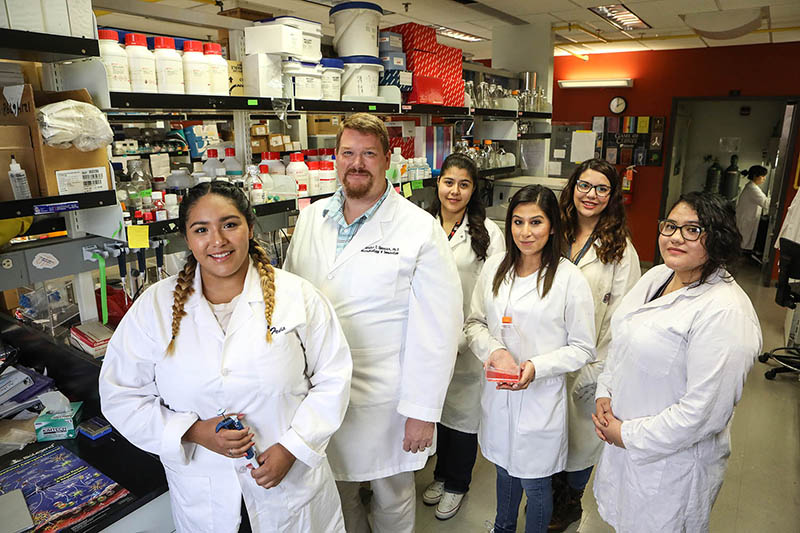UTEP Professor Awarded $1.5M Grant to Research Inflammatory Responses in Immune System Diseases
Last Updated on August 21, 2019 at 12:00 AM
Originally published August 21, 2019
By UC Staff
UTEP Communications
The University of Texas at El Paso’s Department of Biological Sciences was awarded a $1.5 million grant from the National Institutes of Health (NIH) to research how natural killer T (NKT) cells regulate uncontrolled inflammatory responses in immune system diseases.

Leading the study is professor Charles Spencer, Ph.D., associate professor of biological sciences at UTEP. The objective of his research is to develop therapeutic drugs to control overwhelming inflammation triggered by infectious disease. In order to accomplish this, Spencer hopes to define the immune response elicited by inflammatory infectious diseases to identify commonalities that could be targeted by future drugs.
“Inflammation is a critical part of our immune response to all infectious diseases,” Spencer said. “However, certain infectious diseases, including Francisella tularensis, Ebola, and pandemic influenza, trigger an over-reactive inflammatory response, referred to as a cytokine storm. For these diseases, the production of this cytokine storm is the direct cause of pathological damage, including acute respiratory distress, hemorrhage, hypovolemic shock, pneumonia, tissue damage, and ultimately death of the patient.”
NKT cells are a population of immune cells that mediate both protective and regulatory immune functions. They play an important role in regulating inflammation in many tissues, including the liver, lungs and abdomen. Recent studies demonstrate that subsets of NKT cells are indeed functionally distinct and that the specific functions of these cells may be dictated in part by organ-specific mechanisms.
“By determining how NKT cells are responding to infection, we can design a drug to stimulate their ability to control the excessive inflammation induced by Francisella tularensis,” Spencer said. NKT-cell-based immune therapy would make it possible to activate the cells present in a particular organ and control the disease.
Research findings from the NIH grant will allow for the development of therapeutics to treat inflammation that is elicited by inflammatory infectious diseases. It is further likely that these drugs could be used to treat other inflammatory conditions, leading to a new class of non-steroidal immune-based anti-inflammatory drugs.
“This grant is the beginning of a line of research that could change how we treat infectious diseases and other conditions, which are caused by an over-reaction of our own immune response,” Spencer said. “The development of these new drugs is critical for infections that can’t be targeted by conventional anti-microbial drugs which target microbial products, such as toxins, and may result in an alternative treatment for the development of drug-resistant microbes.”